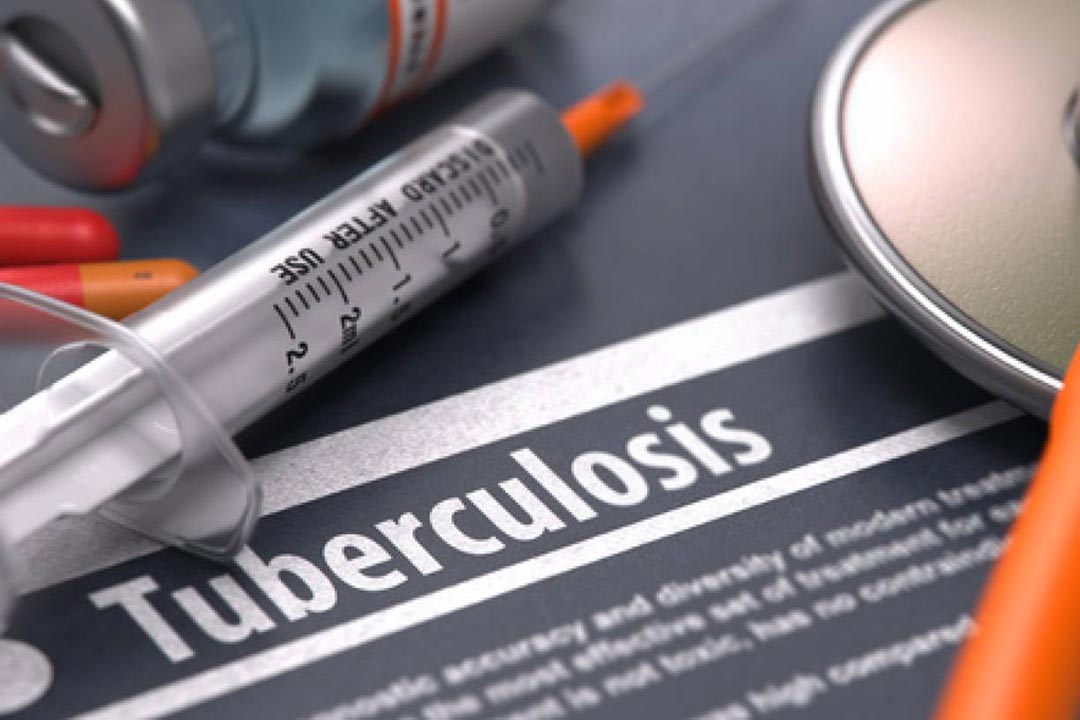A century after the first TB vaccine, a new vaccine is reigniting hope
Imagine a world where TB doesn’t steal millions of lives each year. That dream might be inching closer, thanks to a groundbreaking vaccine trial kicking off in South Africa.
- 10 May 2024
- 5 min read
- by Mandy Collins

Towards the end of March 2024, the first doses of potentially the first new tuberculosis (TB) vaccine in a century were administered at a clinical trial site in Johannesburg, South Africa, marking a crucial step in the fight against this deadly disease.
"If this vaccine works, it will be a game-changer for TB prevention," says the Phase 3 study's co-national principal investigator, Professor Lee Fairlie, from Wits RHI (she shares this role with Professor Willem Hanekom from Africa Health Research Institute). The study will evaluate whether the M72/AS01E vaccine candidate can protect older adolescents and adults aged up to 44 years against pulmonary tuberculosis.
“BCG will protect younger children – and we know that younger children, especially those under five years, are at higher risk of TB disease. However, BCG doesn’t protect very much beyond early childhood – certainly not to the extent that we would like.”
– Professor Lee Fairlie, Wits RHI
Between 50% and 60% of the anticipated trial participants are set to be drawn from the South African population, with up to 20,000 people in seven countries taking part in the Phase 3 study. The remainder of participants will be enrolled in Zambia, Malawi, Mozambique, Kenya, Indonesia and Viet Nam.
The TB burden on global health is significant: according to the World Health Organization, in 2022 TB was the second leading infectious killer after COVID-19, and killed more people than HIV/AIDS. "TB causes disease in about 280,000 people in South Africa on an annual basis, and globally, 10.6 million people, with 1.3 million deaths," says Fairlie. "It is a major issue, particularly in low- and middle-income countries."
Currently, the only available vaccine for TB prevention is Bacillus Calmette-Guérin (BCG), which is given to babies soon after birth in some countries. The vaccine was first administered to human beings in 1921, and provides good protection against TB for younger children and against severe forms of TB, but it has its limitations, says Fairlie.
"BCG will protect younger children – and we know that younger children, especially those under five years, are at higher risk of TB disease," she explains. "However, BCG doesn't protect very much beyond early childhood – certainly not to the extent that we would like."
She adds that today there is the option to give TB preventive therapy (TPT) if someone has had contact with TB, but that relies on an individual taking medications for at least six months – and patients often fall off the compliance wagon. TPT programmes in South Africa have also been shown to be sub-optimal for a variety of reasons, including poor monitoring, scepticism among health workers, ineffective contact tracing and even socio-economic factors at patient level. Therefore, preventing TB disease with a vaccine is a more desirable – and practical – option.
Have you read?
That distinction is critical – this vaccine aims to prevent latent TB developing into TB disease, she says, rather than TB infection. "About a quarter of the world's population has been infected with TB, but managed to clear it, and have what we call latent TB," she says, "which means they've been infected, but they haven't gone on to develop TB disease.
"People may go on to develop TB disease for various reasons. But the first study showed that in people with evidence of latent TB who were vaccinated with M72/AS01E, there was a 50% reduction in pulmonary TB cases."
One of the challenges in TB vaccine studies, Fairlie says, is that researchers are still working out what all the correlates of immunity are – in other words, the measurable signs that a person is protected against becoming infected and/or developing the disease.
"You can measure the effects of the vaccine by looking at the number of people who become diseased with TB, and that's the primary endpoint of this study in people who have latent TB," she says. "But the actual immune marker work is still very much ongoing, and the study hopes to contribute to that – to contribute to identifying what the immune response would look like, whether it results in protection from TB disease and how we can measure it."
Participants enrolled in the trial will be tested for latent TB using Interferon-Gamma Release Assays (IGRAs), which are a type of blood test. Of the 20,000 total participants, 18,000 will be IGRA-positive – which means they have evidence of latent TB; 1,000 will be people living with HIV; and 1,000 will be IGRA-negative.
“The prospect of having a really good option for TB prevention that doesn’t rely on people having to take treatments or go to regular clinic visits is huge.”
– Professor Lee Fairlie, Wits RHI
"We are trying to focus on communities that are considered to be high-burden communities for TB – what we call TB hotspots – and very much with a public health focus," says Fairlie. There will be about 34 sites in South Africa, across multiple provinces.
Participants will each be randomly allocated to receive either a placebo or the M72/AS01E vaccine, and investigators and the participants themselves are blinded to who gets what. They will be vaccinated twice, on day one and day 29, and investigators keep a close eye on any adverse events. One of the critical things participants will need to report, of course, is if they develop symptoms of TB.
The primary endpoint of the study will be reached once 110 people develop TB – Fairlie says the study runs for at least four years, or until that endpoint is reached. Then the data will be analysed, and hopefully the results will indicate that hope is on the horizon.
Fairlie says she is very excited about the potential of this vaccine candidate to make a real difference in the global fight against TB. "The prospect of having a really good option for TB prevention that doesn't rely on people having to take treatments or go to regular clinic visits is huge," she says.
"Those things don't just impact people's health, they also impact their socio-economic, family and school environments," she adds. "If we have a successful vaccine, it really will change the landscape of TB prevention."






